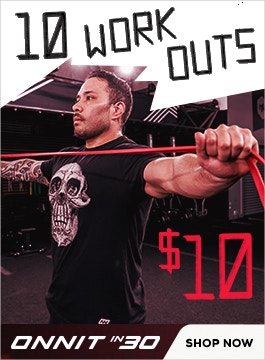Working your whole life to be the best at one thing is a noble effort, but it comes with an inherent risk: what if, quite suddenly, you can’t do that thing anymore? What are you supposed to do then?
When injury forced Matt Vincent to retire from his athletic career, he had to start viewing it not as “the end” but rather the end of a chapter of life. Like any good story, one chapter leads into another, and the main character moves forward. To paraphrase Vincent, most adventure stories don’t peak in Chapter 3.
Vincent tells his tale, to Shane Heins, Onnit’s Director of Community Engagement, in this week’s Onnit Story—our ongoing series of interviews with people who have changed their lives with Onnit’s assistance. See the video of their interview below, along with an edited transcript of the highlights, time-stamped so you can find those moments in the video. You can stay up to date with Onnit Stories by following Onnit’s Instagram TV (IGTV), where a new one appears every other week.
Matt Vincent Show Notes
3:20 – Where Matt Vincent and Onnit Intersected
I’d been following the brand for a long time and had been using Alpha BRAIN®. Then I got to know Kyle Kingsbury [Onnit’s former Director of Total Human Optimization] through his powerlifting coach, Jesse Burdick. When Kyle was still fighting in the UFC, he and Burdick were both based in Pleasanton, California, and I was doing some work out that way at that time. Then Kyle moved to Austin to be part of Onnit, and I came over to visit him and got introduced to Aubrey [Marcus, co-founder of Onnit]. I’ve worked with the team ever since as an ambassador.
4:20 – Matt’s Background
In my former life, I was a Highland Games World Champion. I traveled around the world competing from 2008 until 2016. I picked up two world championships and a bunch of second places in that time, but it came to an end when my right knee gave out. I tried to fix it, and that went poorly—nine knee surgeries and a total knee replacement at age 36.
That was a really hard thing to deal with—losing my identity and having to figure out how to go forward from there. I tried to see how I could get better at everything else in my life the way that I got better at sports. I wanted to make the most of everything from my mindset, to movement, to feeling better, to rehab, to my business, to relationships. After retiring from competition, I got into the podcasting space and some other stuff, and that’s when I ran into Kyle Kingsbury and, through him, Onnit.
7:00 – The Challenge of Letting The Past Go
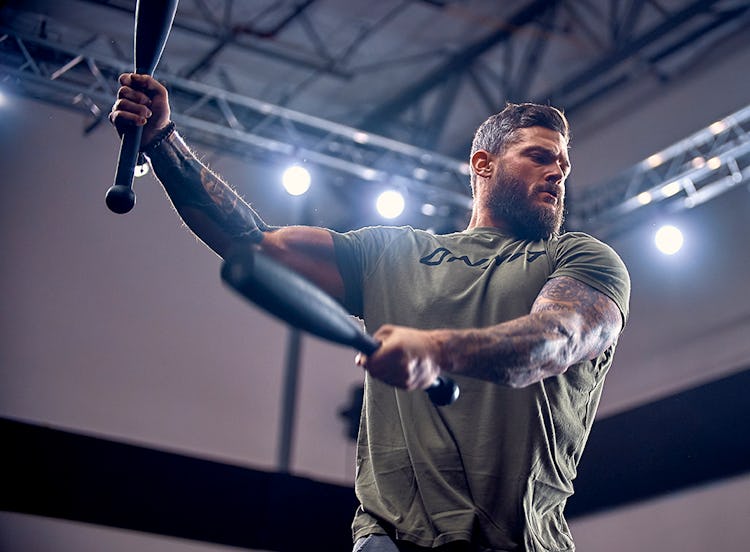
I had played football and then gotten into strongman and powerlifting and weightlifting, and finally the Highland Games. That’s really where I was the best. When that ended, it was really, really tough, because I knew that none of my PR’s from that sport or the world championship were going to be on my tombstone. Those were just things I did, and that doesn’t define your life. But I had never prepared to NOT be an athlete, and now, all of a sudden, I had to accept it all at once. In a six-month period, I had gone from taking second place at the world championships to traveling with a cane and being unable to walk up and down stairs.
I had to realize that this machine I have, that I’d trusted for so long—all these physical things I could do—was gone. It was like if I had spent 20 years learning how to play guitar and then I lost my hands. That was really scary, because it seemed like all the coolest shit I’ve ever done is now in my past, and going forward I’m just going to be a civilian.
That’s how I felt—like the best I could do was have a normal life. I had been working in the petrochemical industry doing outside sales for 10 years, and I was also 13 years into a marriage that I didn’t see a future in. I thought, “What am I doing?” These chapters of our lives end, and you have to ask, “What am I going to do going forward?” I learned to become excited about the process, because I know that I can make the next chapter as awesome as the previous one if I put the same passion into it. If I look at my life as a book full of chapters, if the coolest shit in the book happened in chapter three, that’s a terrible book [laughs]. I want my future to be more exciting than my past, and it’s up to me to make that happen.
12:20 – Defining Success
I grew up with this idea that you could be whatever you want, as long as you worked really hard at it. But that’s not true. Life doesn’t work like that. You can always make progress, but success has to be something you define yourself. For me, success is spending as many days and weeks of my life as I can doing things that light my fucking fire—and those things are not comfortable.
I want to be uncomfortable and push myself, because that’s what got me through the first three chapters of life. That’s how I got stronger in the weight room. If I want my mind and spirit to do the same, I have to push them as well. I want them to adapt, to be able to handle more things. I accept that there’s got to be some stress, because the stuff I’m interested in doing is hard.
15:20 – From Superhuman to Super Human
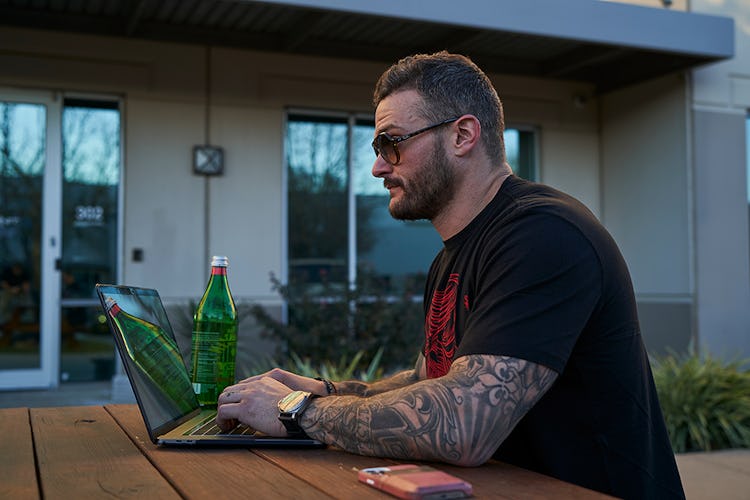
I dealt with eight knee-surgery rehabs that didn’t work, and I treated each one the same—as if it were training for competition, which is to say that I’m capable of suffering through anything if there’s light at the end of the tunnel. I can deal with almost any bullshit if I know it will come to an end.
But being tough wasn’t enough to get my life on track. It took a lot of inward looking, asking myself, “So what are you actually into? This sports thing is gone, so let’s stop pissing and moaning, and let’s figure out what we can do about the things we can control.” I started to do everything I could to address my chronic pain and feel better. I dove into supplementation, cold therapy, and breathwork. I got psychotherapy and managed my diet and nutrition better.
All of that took me from 290 pounds to 230 pounds, and I switched from a lot of strength training to endurance training. I still want to know my edges and my limits, and the endurance stuff has brought a lot of those challenges forward and taught me so much. Leaning into sports that I knew I’d suck at is tough. I’m a 230-pound dude with a fake leg. I’m never going to be a world champion endurance athlete, but I don’t give a shit about that anymore. There’s a big ego challenge going from being best in the world at a thing to being a shitty runner. But if I can’t bench 400 pounds anymore, what does that mean? It doesn’t mean shit. It also doesn’t change that I used to be able to bench in the mid 400s. I don’t have to still hold on and drag those memories with me to know that I did them.
So I started asking myself what other new things I can bring to the table. I would love to be able to look back one day and say, “Hey, at one point in my life, I was a world champion Highland Games athlete. I’ve also done some endurance stuff. I’ve also been able to travel the world.” That’s so much more interesting to me as a life story, because the lessons I learned from becoming the best in the world at one thing apply to everything else I want to get good at. Sports taught me to consistently show up. I know it took me 12 and a half years of throwing before I was my best, so I know it may take me 12 years to get good at something else I set my mind to. It makes me think of the analogy, “When is the best time to plant a tree?” Well it was 20 years ago—or today.
21:30 – Why The Work Is Better Than The Reward
The journey is the best part of the path to any goal. It’s the process that you get all the good from—not the moment of glory that happens at the end. No one writes a book about the view from Everest—it’s always about the climb.
No one gives a shit that I won the Highland Games. It’s a sport that no one even knows about. Can you name any of the events? More people would be impressed if I said I was the world champion at darts, because at least most people have played darts. My point is, if it doesn’t matter to me, then it doesn’t matter. If I’m doing a pursuit because I think I’ll get X reward, or I’ll be loved, or I’ll be accepted, it’s a fucking lie and a fallacy. I’ll be loved because I love me, and I’ll be good because I believe I’m good and I show up for me. I don’t need someone else to motivate me to do it. I’m also aware that I’m dying—a little more each day. I figure I have about 1,175 weeks left to live. So, with that number in mind, with all these goals I have, I better get to it.
23:20 – Shane and Matt Talk About the Perspective of Mortality
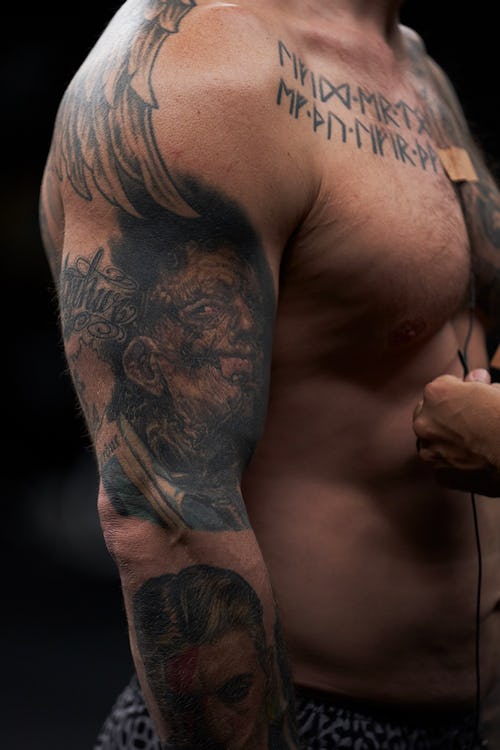
Shane Heins: Thinking about your life in terms of weeks left is a powerful way of looking at things. I had a conversation with my dad a few years ago, and he lives in Canada. I usually get up there every two years to visit. He was talking about how much longer he thinks he’ll live and he said that if I visit every two years like I have been, that means we only have 10 visits left. There was a feeling in my stomach when he said that and I thought, “That’s one way to look at it.”
Matt: Most of us don’t know when our last conversation with someone will be. I thought I’d retire from competition by leaving my shoes out on the field, but instead I finished the season, got an elective ACL surgery, and just never came back. The universe felt differently, and so here we are.
25:35 – Matt’s Travels
I’m currently in Wyoming, parked outside of a coffee shop, stealing their wifi. I live in St. Louis. My girlfriend and I are road tripping out to Vegas for Arkadia, a Fit For Service event. Travel is important to me. I liked competing, but I realize now that competing was a scam to get to travel and be around my buddies. That’s the good shit. The good shit is wandering around Iceland when the sun’s up at midnight, having beers with your friends. Throwing rocks in a field as a Highland Games athlete was just an excuse to be there. So yeah, I travel a lot. This is my fourth cross-country road trip in the last 70 days.
This year alone, I’ve been to Patagonia and done a week-long, 1000-mile motorcycle trip through Florida. Also, a 1000-mile motorcycle trip through California and the Pacific Northwest. I go to Alaska next month and Bali in October. Spending two weeks in one place feels like a long haul for me. I get the itch to travel again.
Traveling offers a perspective change. I’m actually seeing the world from a different location. I’m seeing new people and being around different cultures. I’m getting a chance to share ideas with people outside of my echo chamber. I’m getting a chance to see how other people live and learn from them. I have quite a number of people that I consider mentors, and I’ve been lucky enough to make friends with them and stay with them. I made a decision long ago that I have to see these people once a quarter—that’s a non-negotiable. I’ll figure out whatever I need to do in my life to make that happen, whether that’s having a podcast that facilitates travel, or taking any excuse I can get to get up and go. I’ll happily get rid of everything and live in a van long before I stay stationary. If I want to take big expeditions, the clock’s ticking on those things.
29:50 – The Danger of Getting What You Want
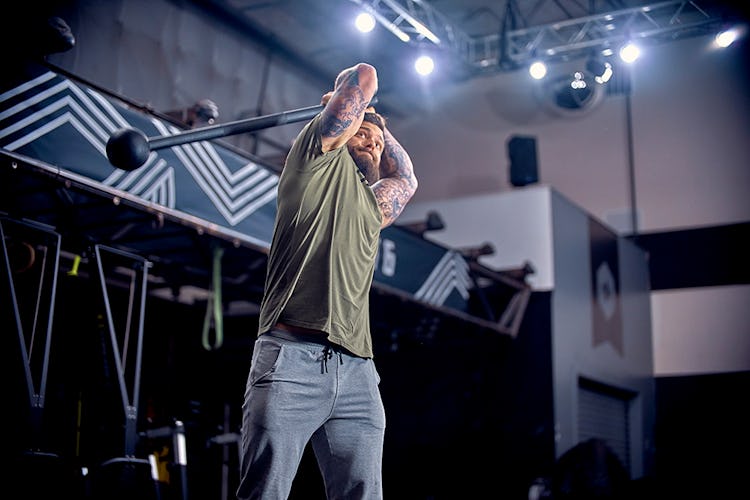
Shane: I love how you described our experience as being like an echo chamber. It’s more accentuated now than ever because we’re all online, in this digital world, where the things that we look at the most are the things that come back to us. The people that we follow are the ones we hear the most repetitively. It can be difficult to step outside of that. You have to work to search out new perspectives.
Matt: Yes, and it’s easy to blame the algorithms, blame bots, blame disinformation. Trying to get Instagram, or Facebook, or TikTok, or any of the social media that you operate on to change their side of it to protect you seems really dumb to me—to ask them to curtail it. It’s all a reflection of you. It’s showing you the things that you invest the most time in. It’s not intended to make you angry, but for many of us, it does. I guarantee you when people made these algorithms that deliver personalized content, they were like, “This will be great. It’ll show people more of the things they’re into.” No one asked, “What if someone only looks at shit they hate?” They weren’t thinking that people would do that, but we do [laughs]. Because we’re a really, really weird creature.
Learning to look at things from a different perspective really hit me when my dad passed away. He died in 2014 from pancreatic cancer. I think about my dad growing up in Sulphur, Louisiana, which is where I grew up. He got married to a woman from there, my mom, and all their friends were from there. Most of them worked the same job he had—in and out of refineries—and went fishing and did the same shit he did. If my dad had ever had a real existential crisis, who could he call? He could only reach out to people he’s always known who have had the same exact life experience.
I’m glad that the network of friends that I’ve been able to create didn’t find me. I went out and found them. I now have people that can really help me who look at the world so much differently than I do. That’s been incredible for me to be around.
37:40 – What Matt Got From Onnit
Something I’ve learned from Onnit is that if I can’t acknowledge my weaknesses, I’ll never be able to go after them. It takes some awareness to sit there and be like, “Man, I handled that poorly.” I’ve had to figure out how to better manage stress and anxiety so that I can use it as energy to do the things I want to do. I realize now that failures are teachers, and figuring out how to fail and try stuff is so much more important than thinking that success is what teaches you, because it doesn’t.
41:00 – Matt’s Favorite Supplement
Alpha BRAIN® Black Label. I like that extra bit that comes with it. I feel better using it, and I like what I accomplish when taking it. Total Human® is next, just because I’m really lazy when it comes to supplements and I don’t remember to take all the ones I need. Total Human® makes that convenient by having so many of them in one place. I take my Total Human® pack first thing in the morning. Then, after I work out, I’ll typically do a protein shake. I use the grass-fed Whey Protein from Onnit, and I’ll have that with Alpha BRAIN® Black Label.
43:20 – Matt’s Favorite Food Product
The Protein Bites are killer. I try to limit my intake on those because I can just sit there and eat 20 or 30 of them in a sitting.
45:35 – Favorite Workout Tools
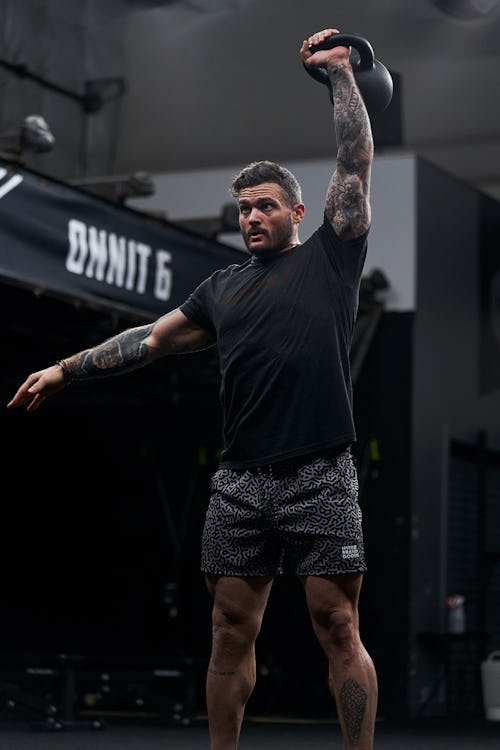
Kettlebells and steel maces. As a thrower, nothing weighs very much. None of the stuff we throw is very heavy. I mean, the heaviest weight we’ll throw is 56 pounds. So I had to learn to apply force quickly and move in a certain order to accomplish the job well. The weight isn’t as important as the amount of the effort I can put into the actual implement. So I got a lot of what I loved about throwing as an athlete from playing with kettlebells and maces, and some of the steel clubs. Even now, I still want to be a full-body athlete who can move.
49:10 – Training Around Pain
I get questions from people about training programs a lot. Something like, “The kettlebell clean kills my wrist. What can I do?” I say stop fucking cleaning. Do a swing and leave your hand out front—you’ll get everything from that movement that you would from a full clean other than a small bit of eccentric load at the end of the range of motion. So don’t throw out the whole program because your wrist can’t support the weight. Do everything else except that. Adjust however you need to—the principles are the important things.
I think if the 29 year-old me, who was just coming off of a world championship, saw how I currently train, he’d be very confused. He’d probably yell at me a lot. But he’s been wrong before [laughs].
56:55 – Matt’s Favorite Highland Games Memory
It was 2014, my first world championship. I was down a point and a half going into the final event, which was like a shot put throw but with a 16-pound stone. In my last throw of the event, I got it together and ended up taking first by having a four-foot bigger throw than I had had all day. Without that, I couldn’t have won. That was one of those moments that tests whether all the training prepared you or not, and in that case it did. I had the confidence to show up when I really needed to.
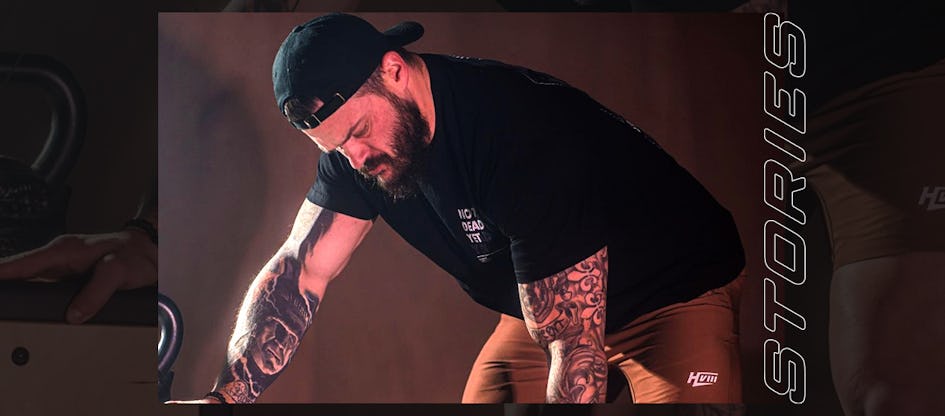
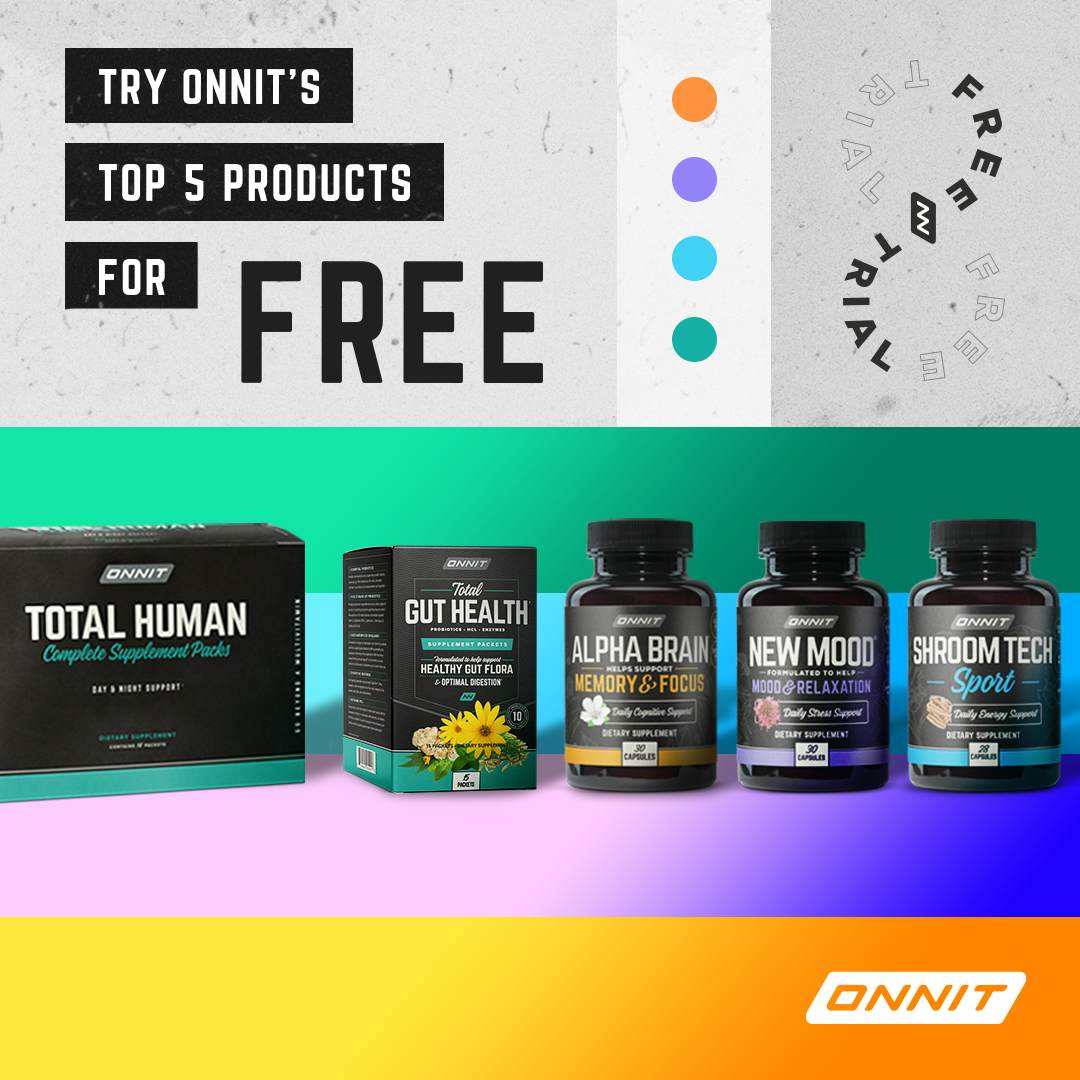)





